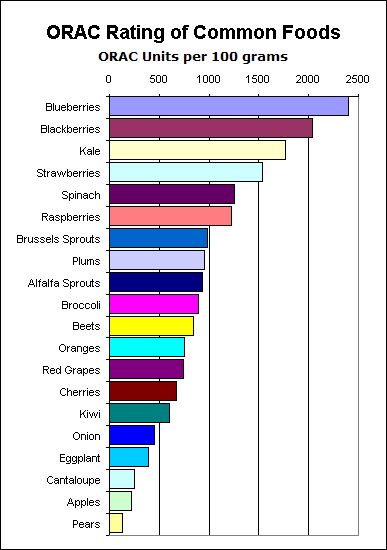Strawberries seem simple enough, but they’ve been hiding beautiful and benevolent complexities that are ripe for research.
Previous research found that strawberries could help prevent throat cancer. Look at the shape when you cut one horizontally – does it not look like a human trachea or throat? Or a pair of lips? Doesn’t its crimson hue make you wonder if it works on cardiovascular health?
What’s truly amazing is that such research works with small amounts or in dried form, showing us once again the tenacious power of nutritional food and the body’s ability to extract it.
This was demonstrated in two recent studies by the FASEB journal.
In “Strawberry and Raspberry Phenolics Reduce Fat Accumulation in Caenorhabditis elegans,” the authors wanted to see the mechanism for how berries help change fat storage. Strawberry and raspberry extracts significantly decreased the triglyceride accumulation in wild type strain compared to controls (by 40% and 31%, respectively).
They found the genes that led to fat reduction and concluded:
These results suggest that strawberry and raspberry phenolic compounds could be beneficial to control fat storage in an animal model and further research is needed to determine the mechanism by which these berry bioactives modulate fat accumulation.
The sister study, “Strawberry Polyphenols and Insulin Resistance: a dose-response study in Obese Individuals with Insulin Resistance” tackled another area of chronic disease and obesity by only using strawberry polyphenols to study insulin levels.
They write:
Insulin resistance is a major risk factor for developing type 2 diabetes mellitus (T2DM). Epidemiological data suggest that dietary anthocyanins (ACN) are associated with lower insulin resistance (IR) and T2DM risk. The present study assessed the effects of strawberries, a major dietary source of ACN, on acute insulin and glucose responses in individuals with IR. In a randomized 4-arm crossover study, 23 obese adults consumed beverages containing freeze-driedstrawberry powder (FDS) at 4 levels [0, 10, 20, or 40 g corresponding to ~0 to 368 umol ACN].
Important note:
The FDS beverages were fiber controlled and served with a standard meal with blood collected before and for 6 h after meal consumption on 4 occasions.
Result:
Mean 6 h insulin was significantly lowered after consuming the 40 g FDS beverage/meal compared to all other beverages (p<0.05). No differences were observed in 6 h glucose responses, although the magnitude of increase from baseline was significantly lower (~29%) after the 40 g FDS beverage compared to other beverages (p<0.05).
In adults with higher fasting insulin and greater IR, significant reductions in peak post meal insulin was apparent with 20 g and 40 g FDS beverages (p<0.05), whereas in those with a lesser degree of IR the 40 g FDS reduced peak post meal insulin.
These data support the view that strawberries have a role in improving insulin sensitivity in people with insulin resistance.
It wasn’t until the last minute that I saw that the studies were supported by the CA Strawberry Commission, CA Dept of Food and Ag, Sacramento, CA. That could pose a research bias, however, past literature has upheld the health compounds of strawberries and one would be hard pressed to argue that junk food is better.
Just check out the antioxidant measurements (source). The USDA claims that strawberries actually have over twice the amount listed below. If true that would make them way more anti-inflammatory than kale:
People with diabetes, pre-diabetes other insulin issues and inflammatory issues need to be cautious about fruit and juicing until the levels are balanced.* I have found that blending or “blasting” frozen strawberries with greens, protein, coconut oil, vegetables and ground flaxseed makes for better balance. This is where dried powdered fruits can also be handy because they tend to be less sweet. Interestingly, cherries are another fruit that are researched for help with diabetes even though they too are sweet! Is research finally looking at the overall picture?
 In most cases strawberries do receive a ton of pesticide exposure; even organic strawberries are treated as seed/seedlings. This author does not know of a true way around this, unless one knows how to take untreated seeds and grow them, which takes lots of patience and care before the plants bear fruit. Perhaps “wild” and heirloom varieties are the way to go. The same journal has claimed that organic strawberries showed barely detectable levels of bee-killing pesticides. Increasing your probiotics can help counteract the chemical exposure.
In most cases strawberries do receive a ton of pesticide exposure; even organic strawberries are treated as seed/seedlings. This author does not know of a true way around this, unless one knows how to take untreated seeds and grow them, which takes lots of patience and care before the plants bear fruit. Perhaps “wild” and heirloom varieties are the way to go. The same journal has claimed that organic strawberries showed barely detectable levels of bee-killing pesticides. Increasing your probiotics can help counteract the chemical exposure.
In any case, even modern dried strawberries offer amazing health compounds. Strawberries are worth it!
*Please go with your intuition and the guidance of your preferred health care practitioner. While the studies are helpful in better understanding the complexities of whole and dry fruits, insulin problems are nothing to mess around with.
Heather Callaghan is a natural health blogger and food freedom activist. You can see her work at NaturalBlaze.com and ActivistPost.com. Like at Facebook.
Recent posts by Heather Callaghan:



Be the first to comment on "Strawberries Found to Help With Insulin Resistance and Obesity Related Disease"